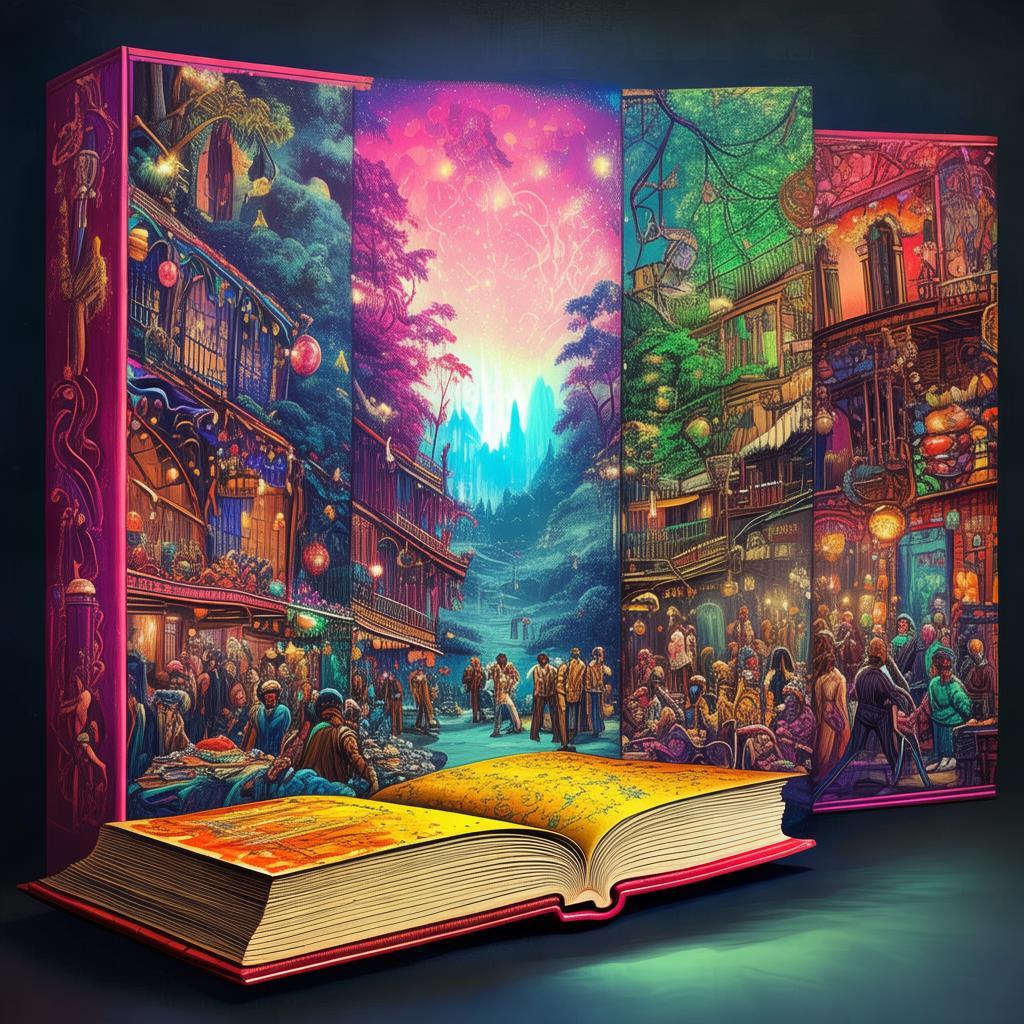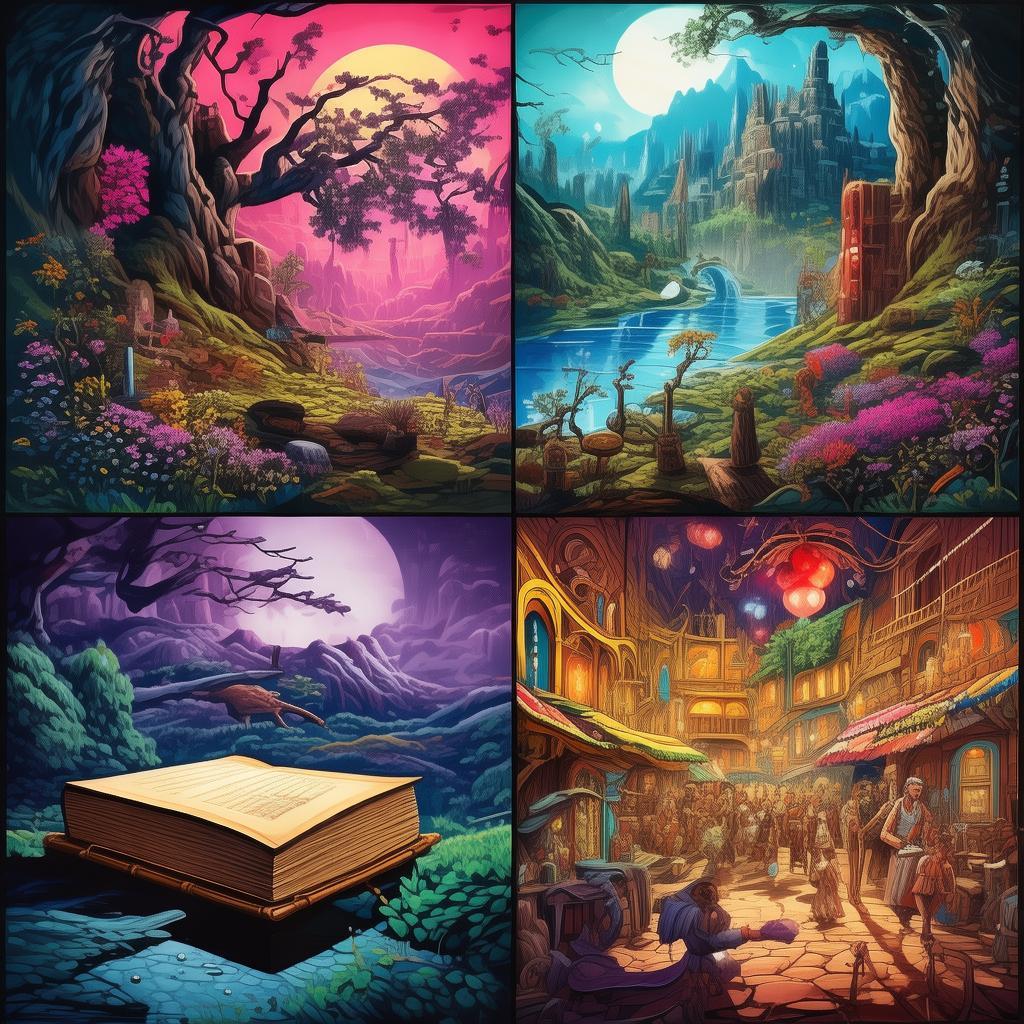The Enchanted Lake's Three-minute Lullaby: A Lullaby of Death
In the quaint village of Eldergrove, nestled between rolling hills and the shimmering waters of the Enchanted Lake, the air was thick with the scent of pine and the distant call of the loon. The villagers spoke of the lake with reverence, a place where the water was said to hold ancient magic, but they never ventured too close, for it was said that those who did would never return.
At the heart of Eldergrove stood an old, ramshackle cottage, its windows fogged with the breath of a hundred years. This was the home of Mrs. Whitmore, the village's most enigmatic figure. She was known for her soft voice and her lullabies, which were said to have the power to soothe even the most restless child. But there was a whisper among the villagers that her lullabies were more than just soothing—they were enchanted.
The story of the Three-minute Lullaby began with a child named Elara, whose laughter was as bright as the sun. Elara was the village's golden girl, her smile lighting up every corner of Eldergrove. But one fateful night, as the moon hung low in the sky, Elara was found lifeless on the shore of the Enchanted Lake. Her eyes wide with terror, her hands clutching a single, torn page from a book.
The village was in an uproar. The townsfolk demanded answers, and the authorities were called. The cottage of Mrs. Whitmore was searched, and to their horror, they found a dusty, leather-bound book filled with strange symbols and cryptic words. The book was Mrs. Whitmore's, and the lullabies were her creation.
The lullabies were unlike any other. They were not simple melodies meant to lull a child to sleep; they were spells, ancient and dark. Each lullaby was crafted to bind the soul of a child to the magic of the Enchanted Lake, and once a child's soul was bound, they were forevermore a part of the lake's mystery.
The villagers, in their grief and anger, turned on Mrs. Whitmore. They accused her of using her lullabies to steal the souls of their children. But Mrs. Whitmore, her eyes filled with sorrow, claimed that she was the victim. She had been a child once, too, and she had been the one whose soul was stolen by the lake's magic.
As the investigation deepened, the villagers discovered that Mrs. Whitmore's lullabies were not the only ones with power. For generations, the elders of Eldergrove had been performing the lullabies as a ritual to protect their village. But the ritual had a dark side; it required the sacrifice of a child's soul to maintain the magic.

The climax of the story came when the village's youngest child, a boy named Finn, was found missing. The villagers were frantic, searching the lake and the woods, but it was Mrs. Whitmore who knew where he was. She had been the one to find him, bound and gagged in the old, abandoned cottage by the lake.
With the help of Mrs. Whitmore, the villagers managed to break the spell that had trapped Finn's soul. But the cost was great; the magic of the Enchanted Lake was broken, and the lake's surface began to crack and shatter. The villagers, realizing the true nature of the magic, knew that they had to leave Eldergrove for good.
The final scene of the story is one of heartbreak and loss. The villagers gather on the edge of the lake, their eyes reflecting the shattered surface. Mrs. Whitmore sings the Three-minute Lullaby one last time, not as a spell, but as a farewell to the village she had called home. As the last note fades, the villagers turn and walk away, leaving behind the enchanted lake and the dark magic that had bound them for so long.
The story of the Enchanted Lake's Three-minute Lullaby serves as a chilling reminder of the power of magic and the price of protection. It is a tale that will be whispered through the generations, a warning against the dangers of seeking power at any cost.
✨ Original Statement ✨
All articles published on this website (including but not limited to text, images, videos, and other content) are original or authorized for reposting and are protected by relevant laws. Without the explicit written permission of this website, no individual or organization may copy, modify, repost, or use the content for commercial purposes.
If you need to quote or cooperate, please contact this site for authorization. We reserve the right to pursue legal responsibility for any unauthorized use.
Hereby declared.









